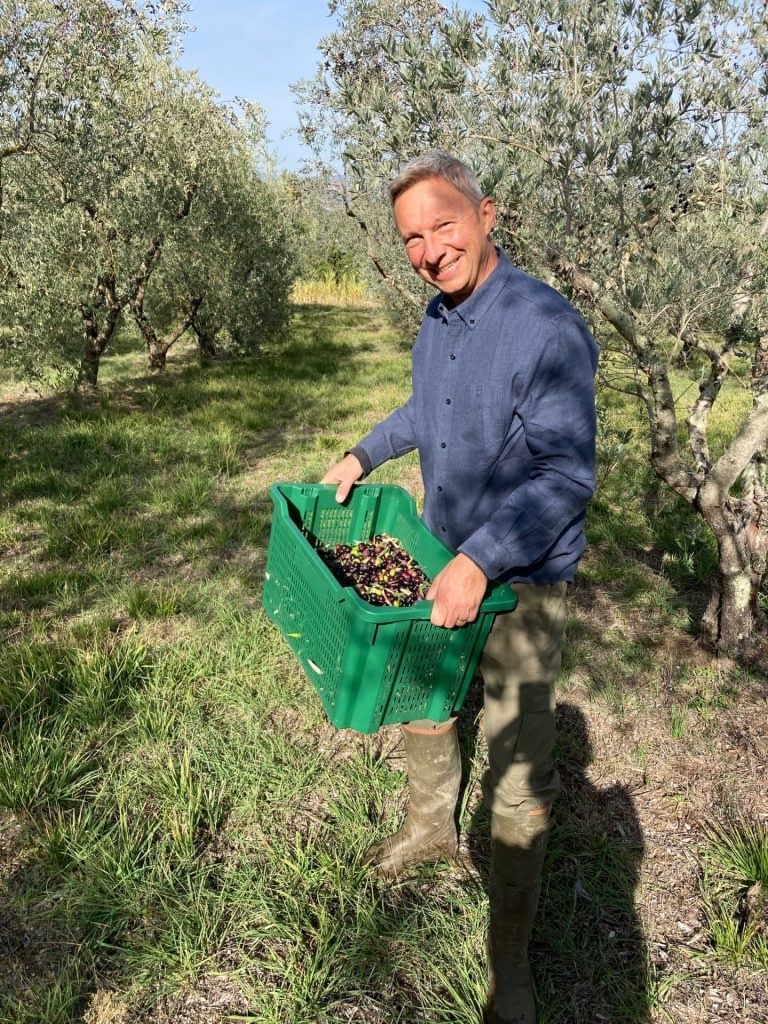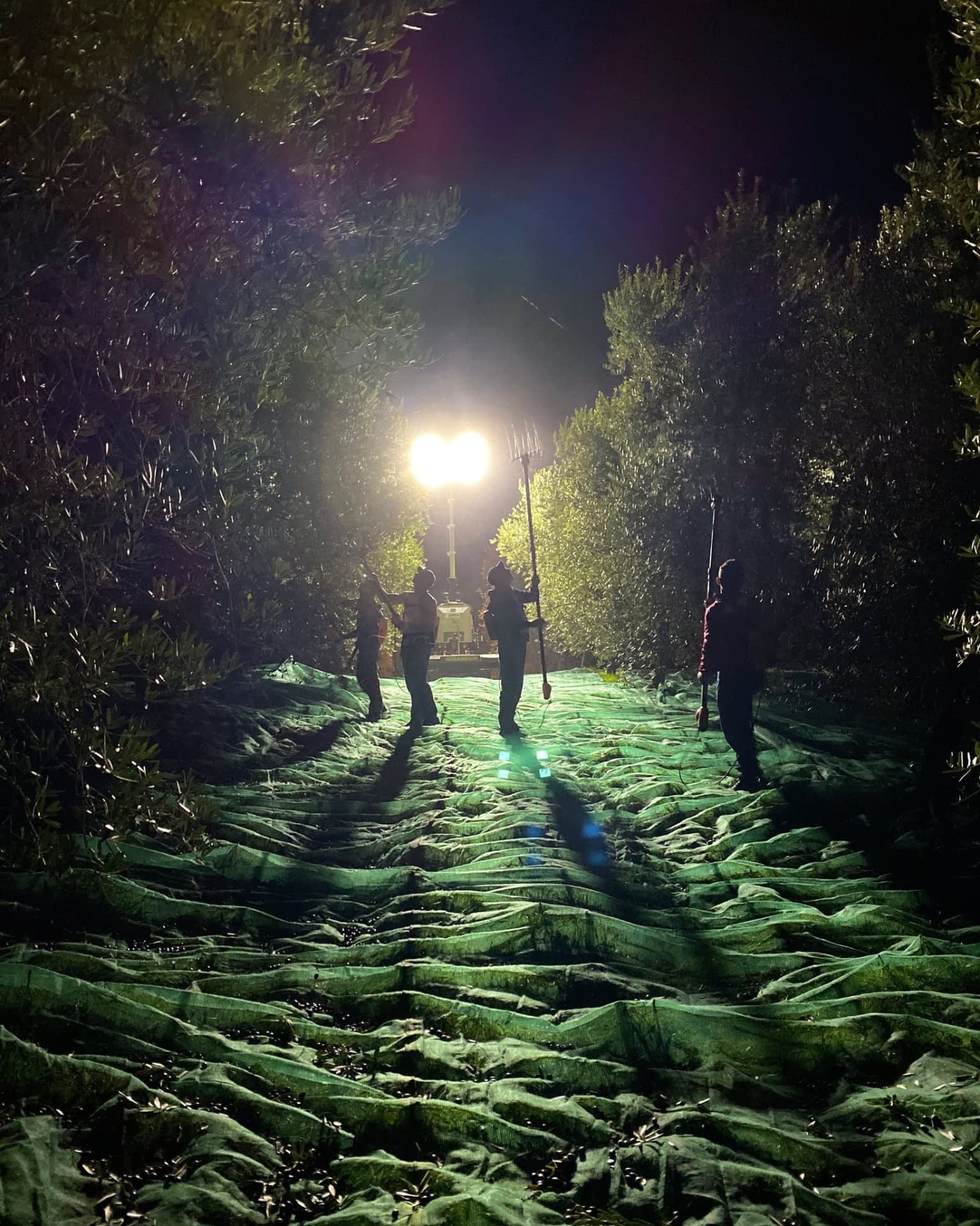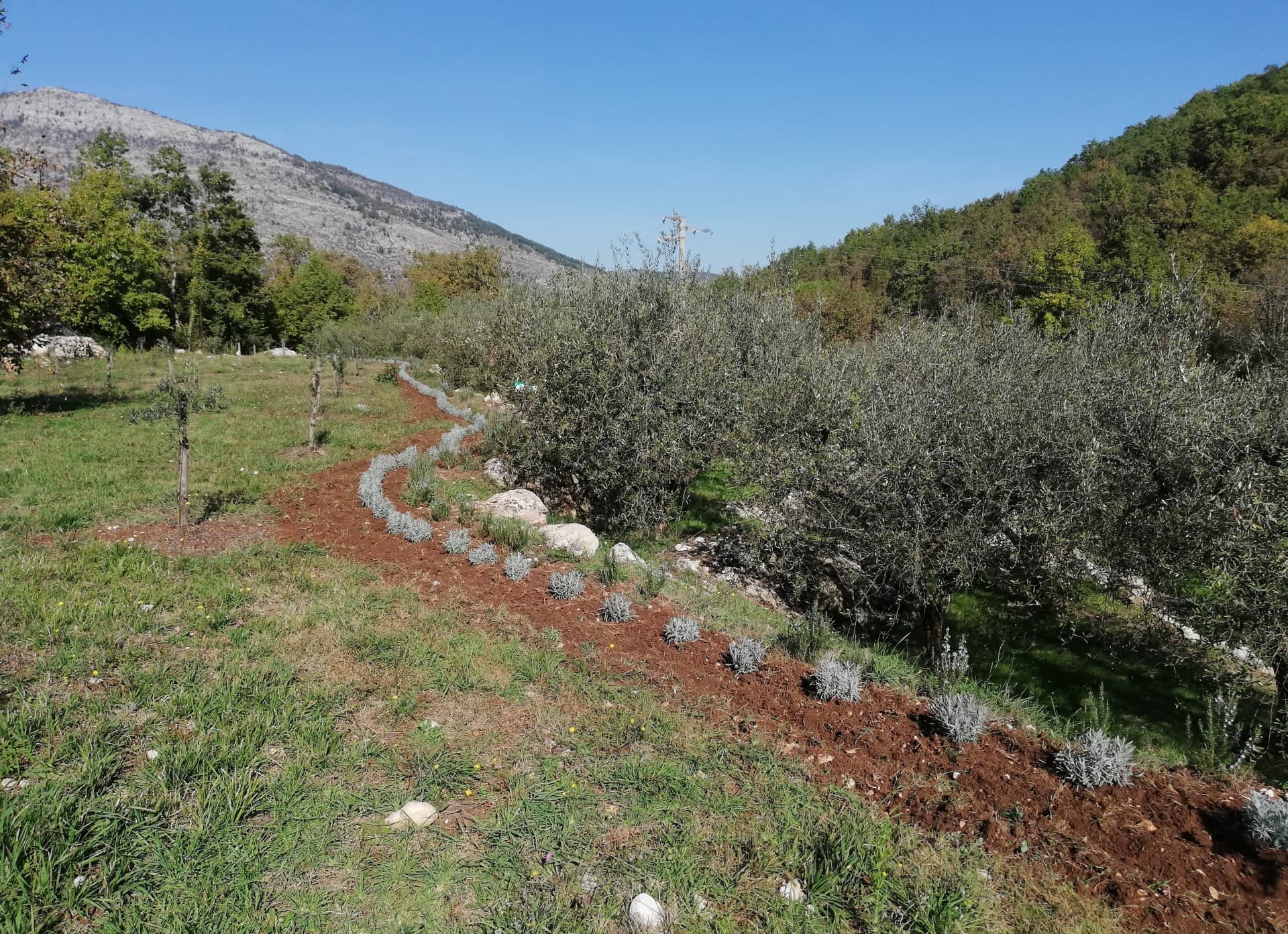Sustainability Key to Success of Central Italy’s Award-Winning Producers
Producers from Central Italy reflected on success at the 2022 NYIOOC and looked ahead to the coming harvest.
 Umbria, Italy
Umbria, Italy Part of our continuing special coverage of the 2022 NYIOOC World Olive Oil Competition.
Producers from central Italy were undisputed protagonists at the 2022 NYIOOC World Olive Oil Competition. Once again, they earned many awards as a result of their care for the land and focus on the sustainable use of resources.
Olive growers with a long story of successes were joined by first-time winners, all of whom are aware of the crucial role farmers play as protectors of the environment.
“We are thrilled to have won this prestigious award,” said Laurence Deprez Zenezini, of Cultura Viva, after receiving a Gold Award for her Le Clarisse blend.
See Also:The Best Olive Oils from Italy“Our reference market is the United States, and this pushed us to participate in the NYIOOC, which is an important showcase for the international market,” she added.
After living in many countries around the world, she settled in Umbria with her family. “Last year, in June, we attended a course for olive oil tasters, and in October, we carried out our very first harvest,” she said.
Located in Collazzone, in the province of Perugia, her property includes a small hamlet with the former monastery of the Poor Clares, from which the name of the oil comes and a farmhouse surrounded by 40 olive trees. Another 600 plants of Moraiolo, Leccino and Frantoio, are spread over the hill below.

Co-founder Stefano Zenezini harvesting olives at Cultura Viva
“The first project was to recover this place,” Deprez Zenezini said. “Then we started pruning the trees doing consistent reform work. Last year, also due to weather issues, we harvested 25 percent of the capacity of the grove.”
They recently added a new plot with 120 trees of the Don Carlo variety, planted in a traditional pattern to preserve the original landscape shape. Protection of the land and its biodiversity underlies the vision of Cultura Viva, which means living culture.
“We want to make culture,” Deprez Zenezini said. “With the olive leaves from harvest and pruning, we also produce a unique kombucha. In doing this, my husband Stefano and I are supported by our two children, who help us with the communication of the products.”
“Our daughter created the packaging of Le Clarisse through which we want to express purity, harmony, and simplicity,” she added.
Following the principles of regenerative agriculture, the family company has adopted a circular economy approach, where nothing goes to waste and everything is reused, including rainwater.
“Drought is now the main problem,” Deprez Zenezini said. “Considering the rising production costs, we are aware that we have started at a complex time. Yet we are very confident in the future and, also building on these successes, we are looking forward to the upcoming harvest.”
Along with first-time recipients, longtime NYIOOC winners from central Italy celebrated success at the world’s largest olive oil quality competition.
Among these were the producers from Domenica Fiore, also in Umbria, who earned three Gold Awards for their Olio Novello, Novello di Notte and Olio Reserva brands.

Nightime harvesting at Domenica Fiore
“Once again, this year, we have managed to create high-profile products,” Cesare Bianchini told Olive Oil Times. “We are very happy with this result that makes us very proud.”
A master miller and blender, Bianchini follows the whole production process of the multi-awarded blends.
“We collect the different varieties – Leccino, Frantoio, Moraiolo, and Canino – separately,” he said. “We carefully combine them later to create balanced and complex sensory profiles that we could not obtain by randomly mixing the varieties.”
The olive trees thrive optimally at 400 meters above sea level in rich, sandy soil – millions of years ago, probably in the Plio-Pleistocene era, the land that hosts these orchards was a seabed, and it is still possible to find ancient shells in the ground.
After harvesting, the fruits are crushed in the company mill, which is equipped with the latest technology. After the extraction, the by-products are used as natural compost.
“We spread the wet residue as a fertilizer for our groves,” Bianchini said. “We have created a circular system in which wastes are reused.”
The intense heat of the past months forced Domenica Fiore’s team to carry out emergency irrigation and use kaolin powder as a corroborant to avoid the excessive insolation of the plants. This resulted in more work but enabled them to have healthy olives ahead of the harvest.
“Veraison in Leccino and Frantoio usually occurs early,” Bianchini said. “Since daytime temperatures can still exceed 25 °C at the end of September, it can be a problem. This prompted us to schedule part of the harvest at night, with lower temperatures.”
“Night operations offer advantages during the extraction, while the collection of fruits is more complicated,” he added. “Extra attention is required during the operations in the dark, for which we must use a light tower. However, the result is excellent and makes us delighted, since we obtain an excellent product that is successful in the market.”
In Lazio, Paolo de Filippis received a Gold Award for his Itrana monovarietal produced on the Carroccia Campodimele estate.

Award-winning results from polyculture on the Carroccia Campodimele estate
“Obtaining this award is the greatest satisfaction for a farm like ours,” he said. “We are determined to remain a niche company. Since our reference market is abroad, especially in Germany, we have entrusted our extra virgin olive oil to the NYIOOC for its worldwide reputation.”
Located between the towns of Lenola and Campodimele, in the province of Latina, the property comprises rolling hills held up by ancient dry stone walls, giving the landscape an evocative beauty.
“Most of our olive trees are arranged on the terraces,” de Filippis said. “They are interspersed with several types of plum trees, quinces, almonds, walnuts and aromatic plants, especially lavender and rosemary. ”
“We consider these important to attract pollinating insects and will use them to produce essential oils,” he added.
Several fig trees complete the composition of the orchard. The figs are harvested and dried for the Christmas period and used fresh to make jam.
“The sustainable management of the property, according to the principles of polyculture, promotes a rich biodiversity,” de Filippis said.
“My daughter is in charge of the company’s marketing and communication, through which we aim to convey our organic vocation and commitment to sustainability,” he added. “Even our bottle is created in an eco-friendly way, with details in Murano glass and cork that replace plastic.”
Ahead of the current harvest, Lazio has faced the same challenges caused by the pervasive drought, resulting in a lower volume of olives.
“I think the future will see the introduction of rainwater recovery systems,” he said. “We are organizing ourselves as producers, but I think it is crucial that also the local and state governments support us in this action.”
Nevertheless, his Itrana fruits are now healthy after being refreshed by timely late-summer rains that immensely helped them recover from the water stress of the previous months.
“Around mid-October, when veraison will reach 20 to 30 percent, we should start the harvest,” de Filippis said. “This is the trend of the area, where most producers are now focused on high quality, obtaining products with excellent organoleptic profiles.”








